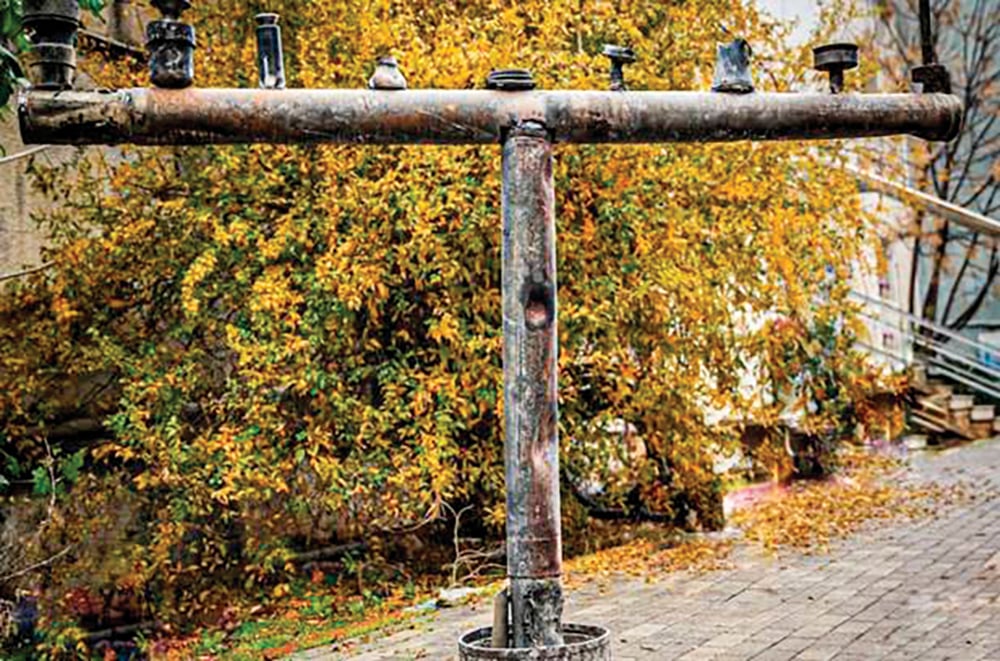His recording “Seven Psalms” makes you wonder.
Since the start of the war on October 7, reciting Tehillim in synagogues and homes throughout the world has become a daily occurrence. Many in our Jewish community are familiar with the Book of Tehillim, mostly attributed to and written by King David over 3,000 years ago.
On May 19, 2023, the recording “Seven Psalms,” written by musician Paul Simon, was released. In numerous interviews, Simon has said that the idea to compose ”Seven Psalms” came to him in a dream. In his dream he was told that he was going to write seven psalms. He said he’d wake up between 3:30 and 5:00 a.m., two or three nights a week, and lyrics would come to him and he would write them down. Being unfamiliar with psalms, he claimed he had to do some research on the nature of the composition. Many may view his experience as being divinely inspired.
Psalm 57 contains the following:
Awake, my glory!
Awake, lute and harp!
I will awaken the dawn.
I will praise You, O Lord, among the peoples;
I will sing to You among the [c]nations.
For Your mercy reaches unto the heavens,
And Your truth unto the clouds.
Echoing some of the words of King David, and composer Leonard Cohen, well-known for his Jewish background, this is a sample of the lyrics on Simon’s latest recording:
The sacred harp
That David played to make his songs of praise,
We long to hear those strains
That set his heart ablaze.
The ringing strings,
The thought that God turns music into bliss;
We left the pickup in the driveway
The moon appeared as amber in the mist.
The 82-year-old songwriter and singer is credited with writing at least 87 songs over a career spanning 60 years. Most of his songs have been international top 10 hits, many at the start of his career with partner Art Garfunkel—a partnership that ended in 1970. He has been prolific since then as well.
On September 18, 2019, the National Museum of American History awarded its signature honor—the Great Americans Medal—to Simon for his significant contributions as a recording artist, songwriter and philanthropist.
Although born in Newark, New Jersey, in an interview with Smithsonian Regent David M. Rubenstein marking the award he was labeled “a nice Jewish boy from New York” (specifically Kew Gardens Hills), to which Paul responded, “barely Jewish.” One article about him on January 17, 2012 stated, “Simon comes from a Jewish background. ‘I was raised to a degree enough to be bar- mitzvahed [sic] and have that much Jewish education, although I had no interest. None,’ he said.”
The person who claims to have little religious background has written words of inspiration, including the following:
The Lord is my engineer.
The Lord is the earth I ran on.
The Lord is a face in the atmosphere,
The path I’ll slip and I’ll slide on.
The Lord is a virgin forest.
The Lord is a forest ranger.
The Lord is a meal for the poorest of the poor,
A welcome door to the stranger.
The Covid virus is The Lord.
The Lord is the ocean rising.
The Lord is a terrible swift sword,
A simple truth, surviving.
More of his deeply eloquent lines follow.
The Lord is a puff of smoke
That disappears when the winds blow.
The Lord is my personal joke,
My reflection in the window.
I’ve been thinking about our tribal nature,
Our benediction and our curse.
Are we all just trial and error?
One of a billion in the universe.
The Lord is my engineer.
The Lord is my record producer.
The Lord is the music I hear
Deep in the valley and the scene.
The Lord is my engineer.
The Lord is the train I ride on.
The Lord is the coast; the coast is clear,
The path I slip and I slide on.
Wait,
I’m not ready.
I’m just packing my gear.
Wait.
My hand’s steady,
My mind is still clear.
Life is a meteor.
Let your eyes roam.
Heaven is beautiful;
It’s almost like home.
Children get ready’
It’s time to come home.
I want to believe in
A dreamless transition.
Wait!
I don’t want to be near
My dark intuition.
I need you here by my side.
My beautiful mystery guide.
…
His groundbreaking last word on his unique contribution to the world is “Amen.”
Although Psalms may not have been written exclusively for Jews, you can decide if Simon, who does not consider himself very Jewish, has a pintele Yid inside him. Pintele Yid is often translated as a “Jewish spark.” It’s a Yiddish phrase describing the notion that every Jewish person has an essential core of Jewishness within them, even if they are assimilated or are unaware of their Jewishness.









